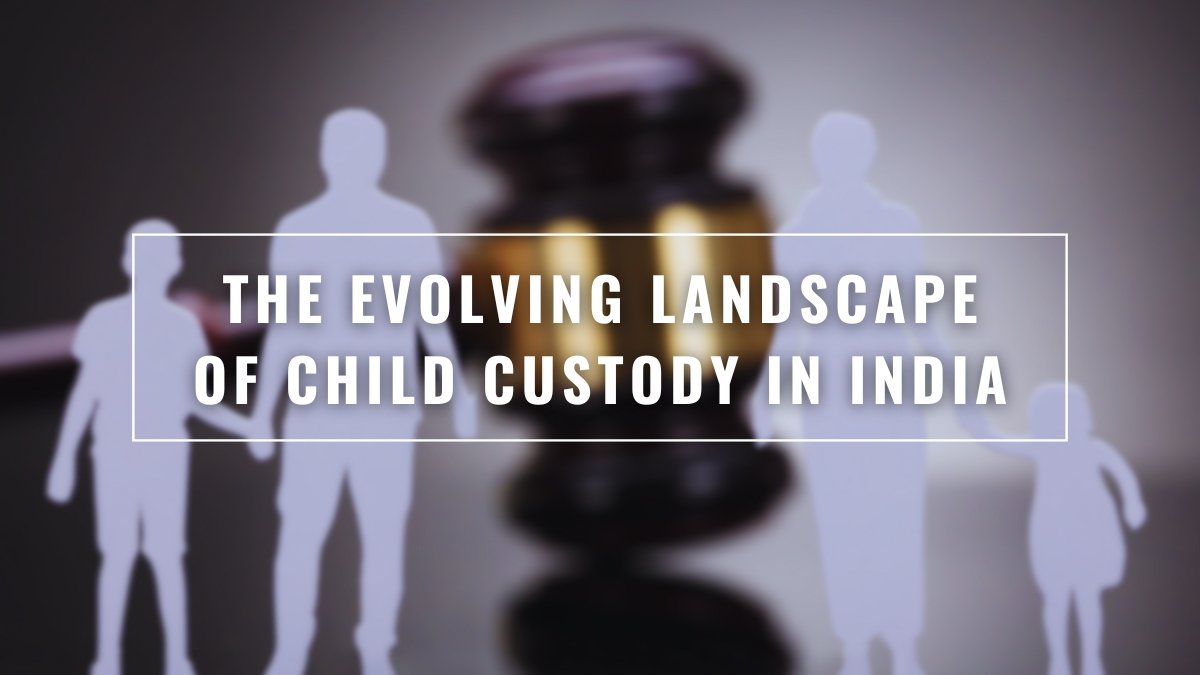The Evolving Landscape of Child Custody in India: A Shift Towards Shared Parenting
Family law in India has seen significant changes over the years, reflecting the evolving societal norms and the increasing recognition of children’s rights. One of the most prominent and contentious issues in this domain is child custody. Traditionally, custody was predominantly awarded to mothers, with fathers playing a secondary role. However, recent legal reforms and judicial pronouncements are gradually shifting towards the concept of shared parenting, aiming to serve the best interests of the child.
Historical Context
Historically, Indian family law has been influenced by patriarchal norms and religious doctrines. The Hindu Minority and Guardianship Act, 1956, and the Guardians and Wards Act, 1890, have primarily governed child custody matters. These laws often favored mothers, especially for young children, under the presumption that maternal care is essential for a child’s upbringing.
The Changing Legal Landscape
In recent years, there has been a growing recognition of the importance of both parents in a child’s life. The Supreme Court of India and various High Courts have increasingly emphasized the need for children to maintain a meaningful relationship with both parents post-divorce or separation.
Key Judgments
Several landmark judgments have paved the way for shared parenting:
- Gaurav Nagpal v. Sumedha Nagpal (2009): The Supreme Court emphasized that the welfare of the child is of paramount importance and both parents play a crucial role in their upbringing.
- Roxann Sharma v. Arun Sharma (2015): The Supreme Court ruled that custody of a minor child below the age of five should ordinarily be with the mother, but this is not an absolute rule. The primary consideration should be the welfare of the child.
- Vivek Singh v. Romani Singh (2017): The Delhi High Court recognized the concept of shared parenting, stating that children are entitled to the love and affection of both parents.
Legislative Developments
In addition to judicial pronouncements, there have been efforts to amend existing laws to reflect the changing dynamics of child custody. The Justice Malimath Committee on Reforms of Criminal Justice System (2003) recommended that shared parenting should be the norm in custody cases. This has led to a growing discourse on the need for legislative reforms to incorporate shared parenting as a principle in custody disputes.
Shared Parenting: The Way Forward
Shared parenting refers to an arrangement where both parents have equal or substantial time with their child, promoting the child’s emotional, psychological, and social well-being. It recognizes that children benefit from the active involvement of both parents in their lives.
Benefits of Shared Parenting
1. Emotional Stability: Children are less likely to experience the trauma of parental separation when both parents are actively involved in their lives.
2. Balanced Development: Shared parenting ensures that children receive a balanced upbringing, with exposure to the values, beliefs, and lifestyles of both parents.
3. Reduced Parental Conflict: A structured shared parenting plan can reduce conflict between parents, as both have clearly defined roles and responsibilities.
4. Legal Clarity: Codifying shared parenting in the law would provide clear guidelines for courts, reducing ambiguity in custody decisions.
Challenges and Considerations
While the shift towards shared parenting is a positive development, it is not without challenges. Factors such as parental conflict, logistical issues, and the child’s own preferences must be carefully considered. Courts must evaluate each case on its merits, keeping the child’s welfare as the central criterion.
Conclusion
The evolving landscape of child custody in India, with a shift towards shared parenting, reflects a progressive approach that prioritizes the best interests of the child. As societal norms continue to change, it is imperative that the legal framework keeps pace, ensuring that children receive the love, care, and support of both parents. This approach not only benefits children but also promotes a more equitable and balanced family structure in post-separation scenarios.
How We Can Help
Navigating child custody disputes can be complex and emotionally challenging. Our firm is committed to providing comprehensive legal support to ensure the best outcome for you and your child. Here’s how we can assist:
- Legal Advice: We offer expert legal advice tailored to your specific situation, helping you understand your rights and options under the law.
- Mediation Services: Our experienced mediators can help facilitate constructive discussions between parents, aiming for amicable solutions that prioritize the child’s well-being.
- Representation in Court: Should litigation become necessary, our skilled attorneys will represent you in court, advocating vigorously for your interests and those of your child.
- Drafting Parenting Plans: We assist in drafting detailed and workable shared parenting plans that cover all aspects of child care and support.
- Post-Judgment Support: We provide ongoing support and advice even after the court’s decision, helping you navigate any issues that may arise in the implementation of the custody arrangement.
Visit our website to schedule a consultation and learn more about how we can help you achieve a fair and beneficial child custody arrangement.



